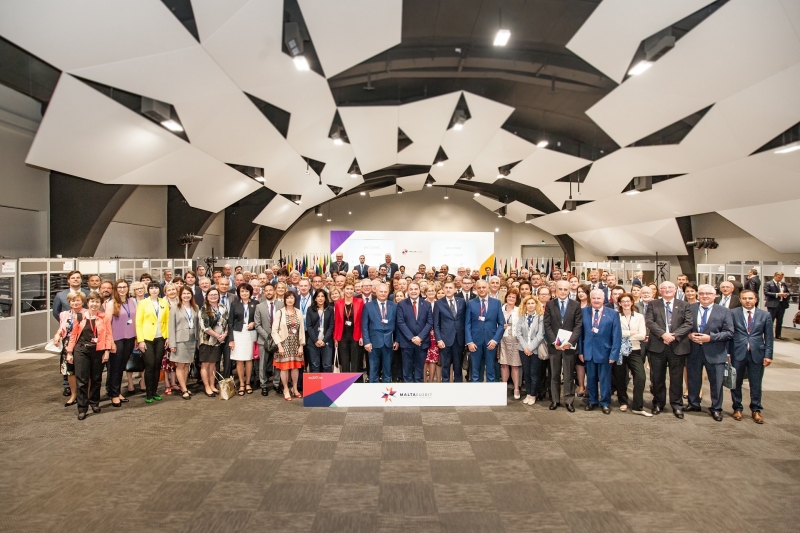Delegation of the Committee on European Integration participated in the Meeting of the LVII COSAC, which took place in St Julian’s within the parliamentary dimension of Maltese presidency.
The Meeting was opened by Speaker of the Maltese Parliament Mr Angelo Farrugia, who emphasised the significance of parliamentary dialogue in the context of numerous political and social challenges that the EU was currently facing. Minister for Foreign Affairs of Malta Mr George Vella presented the results of the Maltese six-month presidency, achieved within six key priorities: migration, single market, security, social inclusion, European neighbourhood, and maritime policy.
The European parliamentarians were also addressed by Chairperson of the Committee on European Integration of the Parliament of Montenegro Mr Adrijan Vuksanović, who emphasised the significance of enlargement policy as one of the most successful policies of the European Union. He presented Montenegro’s progress in the negotiation process with the EU, pointing out that our country, with 26 open negotiation chapters, including two which were closed, was the frontrunner among the countries of the Western Balkans. In his comment to the speeches, Minister Vella said that Malta was strongly advocating for the European future of the Western Balkans countries and that the EU should be united in its commitment to this issue.
The Meeting was continued with the discussion on the topic the role of national Parliaments in the future of the EU, within which the introductory speeches were made by Mr Frans Timmermans, First Vice President of the European
Commission, Ms Mairead McGuinness, First Vice President of the European Parliament, and Ms Marina Berlinghieri, Member of the European Union Policy
Committee of the Italian Chamber of Deputies. The interlocutors assessed that the mechanisms of the “yellow” and “green card” were a useful model of positive impact of national parliaments on decision-making at the European level, but they emphasised that the exchange of information between the EC and national parliaments should be stronger and more transparent, and that the European institutions should be simpler and closer to the citizens.
On the topic of the outcome of the UK Referendum and relation of this country with the EU, the introductory remarks were given by Mr Michel Barnier, Chief Negotiator for the Preparation and Conduct of the
Negotiations with the United Kingdom, and Ms Danuta Maria Hübner, Chairperson of the Committee on Constitutional Affairs of
the European Parliament. During the discussion, the parliamentarians emphasised the significance of transparency and united action of the EU in the process of defining new relations with the United Kingdom. Furthermore, they pointed out that the key task of the EU was to guarantee rights to its citizens who live in the Great Britain and preservation of standards regarding protection of the environment, competition, and social rights. In addition to that, the MPs reminded of the UK’s obligation to settle all the remaining financial obligations towards the EU.
The introductory remarks on the topic of improvement of the EU Integrated Maritime Policy were given by Mr Karmenu Vella, EU Commissioner for the Environment,
Maritime Affairs and Fisheries, Mr Toomas Vitsut, Chairperson of the European Affairs Committee of the
Estonian Riigikogu, and Ms Danielle Auroi, Chairperson of the European Affairs Committee of the
French National Assembly. During the discussion, they recognised three key areas in which a stronger EU initiative was required: greater funding of maritime research, strengthening of skills and qualifications of people in this industry, and improvement of regional cooperation.
Furthermore, the parliamentarians called for greater commitment to protection of the environment and marine biodiversity in the context of increasingly serious climate change and sea pollution.












